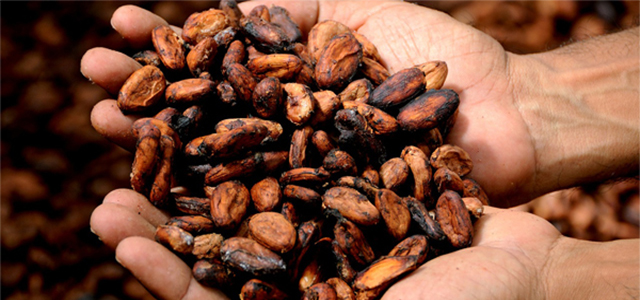
Easter Campaign To Give Cocoa Farmers A Living Wage

A new campaign is calling on chocolate lovers to pay an ‘offset’ this Easter to ensure those responsible for their favourite treats get a fair price.
With the price of cocoa dropping, and farmers bearing the brunt, Stop the Traffik are asking for a donation that bridges the gap between what farmers make and what they need for a living income.
According to the campaign’s website, farmers make about four percent of the total cost of a chocolate bar. In order for them to make a living wage, the cost of chocolate would need to increase by 12 percent. With Australians eating an average five kilograms of chocolate a year, this represents a ‘gap’ of $60 a year—the amount Stop the Traffik are asking people to donate.
Stop The Traffik’s Carolyn Kitto told Insights that the campaign aims to pressure companies to provide a better deal for cocoa farmers.
“It is not that farmers need charity—they need their fair share of the value chain,” Ms Kitto said.
“The others in the chain need to take responsibility for that and we will use the donations to pressure them to this end.”
The price of cocoa declined 40 percent from about US $3,000 to less than US$2,000 a tonne in the last 6-8 months, partially because there is now more cocoa on the market.
“We don’t know totally why this has happened,” Ms Kitto said.
“What we do know is that the total burden of that is borne by the farmer—the person least able to bear the economic brunt in the supply chain and the person with the least power.”
Call for companies to “be innovative”
“We want the producers and companies (who account for 70-80% of the supplies) to do something about this,” Ms Kitto said. Now as soon as we ask them to, they will say we can’t fix a price because price fixing is illegal. That is why what we are asking for is to ‘uphold a living income through the innovation, premiums and processes.’
“They can pay a premium and they can be innovative. They are the players who need to takes responsibility and it is in their interest.”
While Fairtrade certification processes exist that give farmers a higher price for their work, Ms Kitto says that these programs alone have not addressed extreme poverty.
“Much has been done particularly in the last eight years to address child labour and human trafficking and the context of the farmer,” Ms Kitto said.
“The key drivers of use of child and trafficked labour are poverty. All the good of the programs has the potential to be undone with this drop in price (particularly if it is sustained into the next harvest) and if a living income is not addressed.”
More information on Stop The Traffik’s campaign is available here
Jonathan Foye is Insights’ Editor




























































